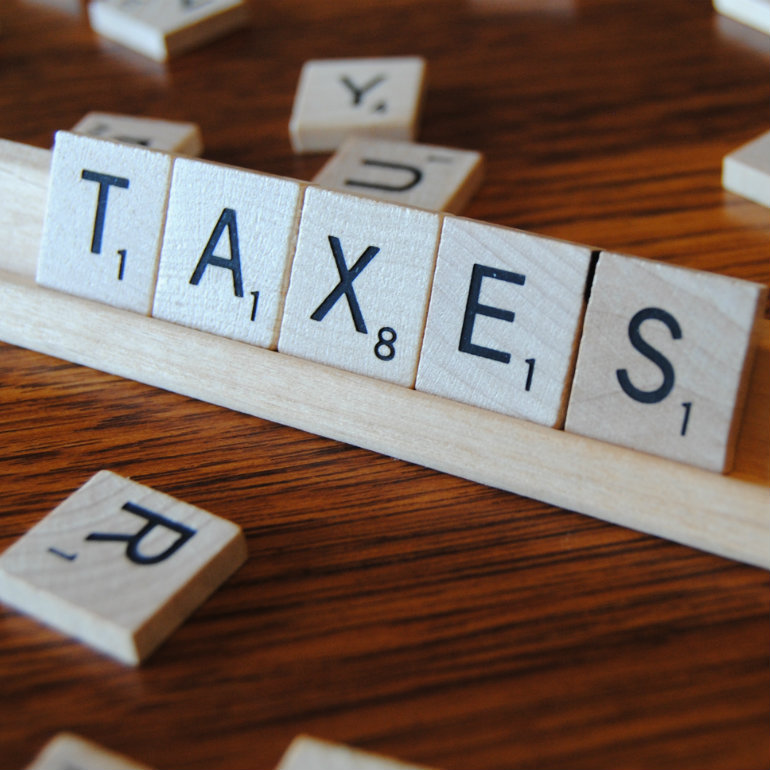Tydzień w gospodarce
Category: Trendy gospodarcze

(TaxCredits.net, CC BY)
The Polish government’s drive to tighten and seal its VAT revenue collecting actions are paying off. VAT revenues in H1’2017 rose by 28 per cent or EUR4.2m. Not only it looks likely that it will augment the budget but provide an improvement in the relations with business community. This also includes shortening the interval of time for refunding, which on average stood at 39 days, four days faster than in 2016. In May it dropped even more, to 16 days.
The actions undertaken to combat fraud and strengthen the system last year are bearing fruit. “The rise of 28 per cent is an amazing outcome, but we need to see if it will be a lasting tendency,” said Tomasz Michalik, a partner in MDDP, tax advisory firms. He bemoaned that Poland lags behind its European colleagues and should have initiated these sealing-up measures earlier. “We’ve lost at least a few years,” he said
Roman Namysłowski partner at Crido Taxand said “Also the rise may be due to an increased consumption and the effects of the government’s child benefits scheme taking effect. There is still a gap of EUR9.4-14.2bn,” he said.
Tomasz Pietryga, a journalist, investigated the scale of the problem in Rzeczpospolita daily. VAT was introduced in 1993, so why only now has the government taken a grip on the problem? Part of the answer lay in the indolence of the bureaucracy, which undertook periodic punitive sorties almost as exemplary measures. The political classes were aware of several sectors, such as fuel, coal, steel, gold and electronics, that were the targets of fraudsters.
The result was worsening of public faith in the government powers. The picture that ordinary Poles got was one of a vast machine that could be directed at them, honest taxpayers, and not at the culprits. Meanwhile, vast sums have been stolen from the government’s coffers.
The Lower House of Polish parliament is planning to start its own investigation, initiated by the deputy PM Mateusz Morawiecki, on the VAT frauds, and preliminary paperwork may be ready by the autumn. Jacek Sasin, MP of the ruling Law and Justice party referred to the matter of VAT fraud as one of the greatest scandals of the period 2007-15.
Rzeczpospolita daily stated that the government’s explanations for the increase in VAT collection rests on two factors – the first is an acceleration in VAT refunds in H1’2017. EUR9bn were refunded as compared with EUR10bn in H1’2016.
Amongst the measures taken were the introduction of a reverse charge, where the buyer is responsible for VAT calculation and payment in the construction sector, liquidation of quarterly returns for all enterprises but small firms, and swingeing penalties for VAT fraud. And a unified inspection questionnaire for those using computer programs.
“The Czechs and Italians,” says Tomasz Michalik, “have introduced a split payment system and the Portuguese have centralised their invoices database. It’s difficult to get excited over a few month’s results, which might be the effect of differing factors. We cannot be certain that the rise in revenues from VAT is the result of the regulations from a few months ago. Let us therefore spare the enthusiasm,” he adds.
According to the Economics Institute of Wrocław University this year VAT revenues, by the end of July, were EUR22.3bn, 25 per cent more y/y. The Poland’s Central Statistical Office (GUS) informed that the revenues are augmented by rising domestic consumption – up 4.7 per cent in Q1’2017, 4.9 per cent in Q2. y/y, boosted by the social transfer payments, such as 500+ child benefits scheme.
Some experts are questioning the results saying that the government may be delaying payments to businesses. In H1’2017 EUR2.4bn less was returned as compared to H1’2016. But the Ministry of Finance replies that businesses are declaring lower quotas than a year ago.
Professor Karol Modzelewski, a tax advisor and specialist of the University of Warsaw, told Polish Press Agency that there are two reasons of an consumption increase and better VAT revenues. “The start of this process was given by 500+ child benefits. There was a one-off rise in consumer demand within those income groups that did not expect a rise in their spending.” The second reason he stated is that “We see a rise in earnings in lower and middle-income groups. National regulations have obviously aided this process in the form of minimum wages.”
“Last year’s predictions were misplaced. Predictions from 2015 were that 2017 would be a catastrophic year were wrong. Even the ratings agencies had to modify their forecasts. But the most important is the position of investors, i.e. small and medium businesses. After a period of a slowdown we can look optimistically into the future, and the main source of the optimism is the demand. We have a good base for guarded optimism,” he concluded
Minister of Justice and General Prosecutor Zbigniew Ziobro has outlined his guidelines for VAT fraudsters. They are draconian – jail and property confiscation, with an absolute recommendation of prison when the crime exceeds EUR235,903. VAT fraud VAT will have the same penalty as murder – a 25 year prison sentence for a fraud of over EUR2.4m, and 3-15 years for up to EUR1.2m. This may seem harsh but the ministry is at pains to reassure that these penalties will not apply to those who made honest mistakes in accounting.
Prosecutors may be able to use recordings of conversations, e-mail snooping and blocking of bank accounts. Speed is vital and procurators have been urged to identify and accuse fraudsters and to close down their businesses.
There will be a new group of VAT specialists and they will operate not on a regional or district level but within the Department of Organised Crime and Corruption of the General Prosecutor. Also other state security agencies, such as Anticorruption Office and Organized Crime Office will be involved
Between 2008-2015 the government estimated that it lost EUR47.2-118bn. Last year the Supreme Audit Office (NIK) uncovered EUR19.3bn in fraudulent invoices, EUR8bn in 2014 and EUR4.6bn in 2013.
The Ministry of Finance is also going against tax fraudsters. Polish media reported that it intends to set up a monitoring department that would check electronic bank transactions 24/7/365 in a search for a tax fraud. This would include 40 employees and cost EUR21.2m in the first 10 years. Estimated revenues are thought to be EUR111bn. The rationale is that tax criminals, including organised groups, are exploiting the electronic banking system for their activities.
The planned legislation calls for financial institutions to send details of customers’ accounts and transactions to a specialised accounting centres via an information system that will perform risk analysis and flag up the risk of fraud. The head of the National Revenue Administration (KAS), formed March this year, will have the power to freeze an account from 72 hours up to three months. This new body combines tax administration, fiscal control and excise taxes. The new legislation is due to come into force at the beginning of 2018.

